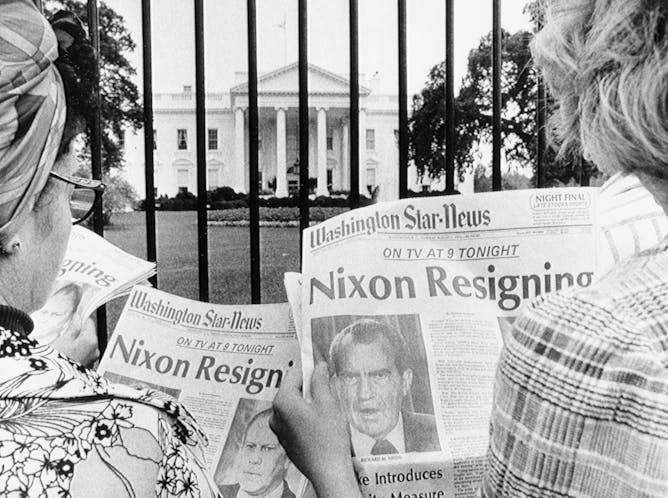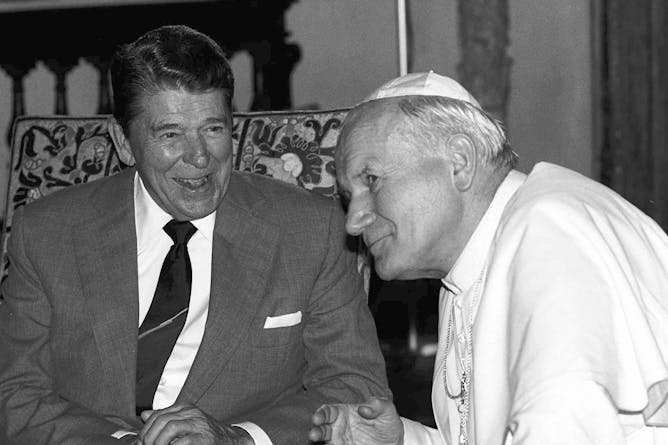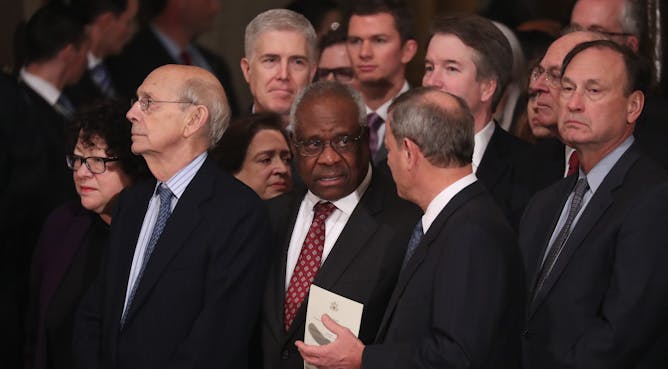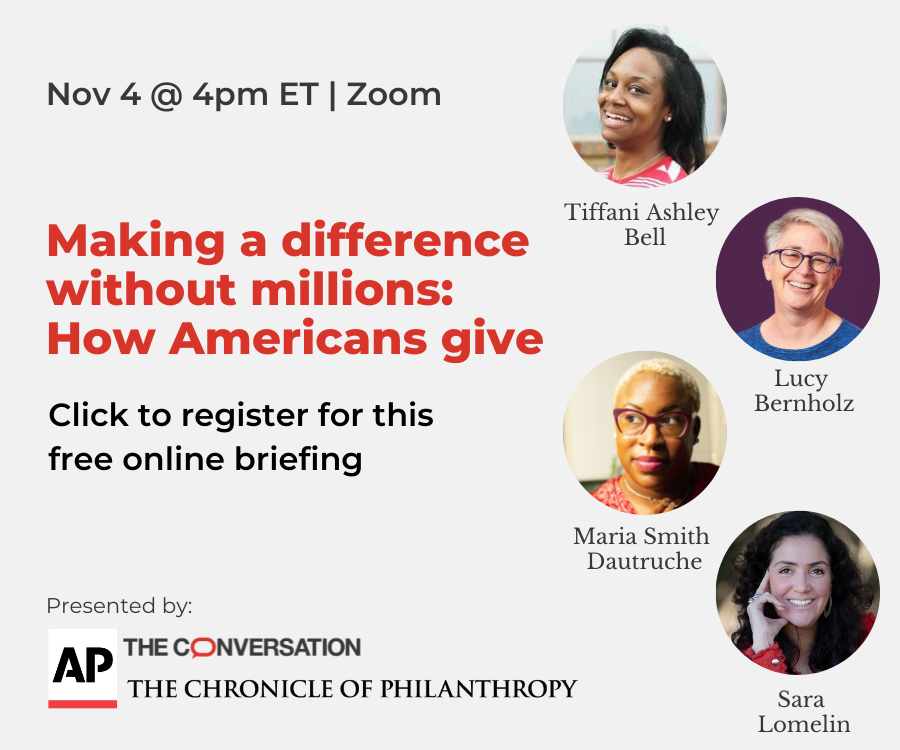|
|
|
|
My life as a journalist has been one long series of itches that I’ve tried to scratch. Like the title character of my favorite children’s book, “Harriet the Spy,” I’m curious and want to understand things. In other words, nosy.
So when former President Trump sued the National Archives and the congressional committee investigating the Jan. 6, 2021, Capitol insurrection to prevent his papers from being divulged to the panel, I wanted to know what role the archives played in Trump’s battle – itch, scratch.
I contacted University of Texas, Austin, political scientist Shannon Bow O’Brien, who is a scholar of presidential speeches. I figured she would be familiar with the role of the archives and could provide readers (and me!) with both a pocket history of the archives and how they’ve handled conflicts over public access to presidential papers. I wanted to know: Was this the first time the archives had found themselves in the middle of a political tug-of-war over presidential papers?
“At the center of the current conflict between Trump and the congressional committee is the status of presidential papers: Are they public or private?” asks O’Brien in the story she wrote for us. “In 1974, the Presidential Recordings and Materials Preservation Act was enacted to prevent the destruction of President Richard Nixon’s materials in the wake of the Watergate scandal. In 1978, passage of the Presidential Records Act settled the question of ownership
over presidential records: They were the property of the American public.”
Itch: scratched.
|

|
Naomi Schalit
Senior Editor, Politics + Society
|
|

Nixon resigned after tapes he had fought making public incriminated him in the Watergate coverup.
Bettmann/Getty
Shannon Bow O'Brien, The University of Texas at Austin College of Liberal Arts
Donald Trump’s lawsuit to stop the release to Congress of potentially embarrassing or incriminating documents puts the National Archives in the middle of an old legal conflict.
|

Pope John Paul II met with President Ronald Reagan in Miami in 1987.
AP Photo/Arturo Mari, File
Steven P. Millies, Catholic Theological Union
Joe Biden may be only the country’s second Catholic president, but a long line of U.S. leaders have met with popes over the years.
|

Justices of the U.S. Supreme Court on December 3, 2018, in Washington.
Jonathan Ernst-Pool/Getty Images
David Orentlicher, University of Nevada, Las Vegas
Despite a historically diverse high court, its voting rules often fail to include minority viewpoints. That could be avoided if justices decided their cases by unanimous vote.
|
|
|
-
Wändi Bruine de Bruin, USC Dornsife College of Letters, Arts and Sciences
The language around climate change can feel overwhelming. A psychology and public policy expert breaks it down in plain English.
-
Mirya Holman, Tulane University; Angela L. Bos, The College of Wooster; J Celeste Lay, Tulane University; Jill S. Greenlee, Brandeis University; Zoe M. Oxley, Union College
As young children learn about politics and political figures, they internalize the idea that politics is a man’s world, which ultimately means political representation is heavily skewed toward men.
-
Rachel Kyte, Tufts University
The world isn’t on track to avoid dangerous climate change, and this year’s climate conference, COP26, is crucial, a former senior UN official writes.
-
Mohammad Qadam Shah, Seattle Pacific University
A scholar from Afghanistan outlines what more than $150 billion in assistance did and didn’t accomplish in two decades following the arrival of U.S. troops un 2001.
-
Alison Gash, University of Oregon
A Supreme Court decision in a case called Planned Parenthood v. Casey opened the door to state laws restricting availability of abortions.
-
Benjamin Franta, Stanford University
Transcripts and internal documents show how the industry shifted from leading research into fossil fuels’ effect on the climate to sowing doubt about science. Now, CEOs are testifying before Congress.
-
Abdulkader Sinno, Indiana University
A scholar of Afghan affairs explains the religious affiliations of different ethnic groups in Afghanistan and why they may not share a common understanding of Islam.
|
|
| |
| |
| |
| |

|
| |
| |
| |
| |
| |
| |
| |
| |
|
|
|
|
|
|
|